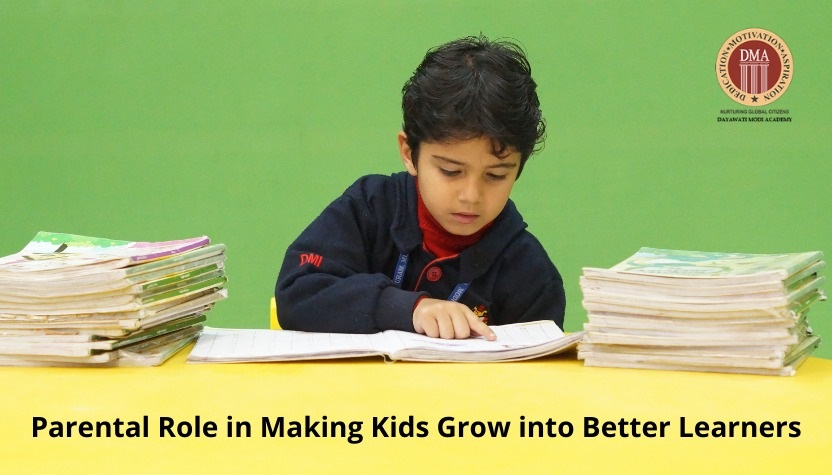Parental role in a child’s life can never be stressed enough. From teaching them to walk to helping them write their very first alphabets, parents remain involved in each and every stage of child development. As such, their role in the academic journey of children is also worth discussing about. Studies show that when parents actively involve in their child’s education process, the kids turn up with better learning outcomes. Thus, parents play a significant role in helping their kids grow into better learners.
At Dayawati Modi Academy, we firmly believe that learning something new has a beauty of its own. And when parents get involved in the learning process of their kids, it not only helps the children to understand the things in a far better way, but they also begin to take an active interest in the learning process.
So, on that note, we, at Dayawati Modi Academy, ranked among the best schools in Meerut, would like to share with our entire parent fraternity a few effective ways in which you can get involved in your kids’ academic journey and ease out the pathway for them.
- Engage in their school work
It is a well-known fact that parent’s involvement in children’s lessons and homework increases their interest in the subject. They start to put more effort and care into their lessons because they now hold their studies higher due to your interest. However, keep in mind that to boost their interest, you must keep appreciating their hard work and efforts.
- Fuel their curiosity
We understand that when it comes to children, they have unending energy to keep popping up the weirdest of questions that nobody could have ever thought of. But what is equally essential for you to understand is that the questions they keep putting up reflect their curious brains, trying and attempting to make sense of the world. Hence, do try to answer their questions as much as you can, or otherwise suggest to them some good books or kid-friendly online portals that they can refer to seek answers for their queries. Always remember, encouraging your children’s curiosity will help make learning a smooth ride for them as well as you.
- Show interest in learning yourself
Just like many other things that children do by observing their parents, they also learn by copying their actions. If you walk or talk a certain way, they will immediately catch on and copy you. You can utilize this behavior in a good way by reinforcing good habits, like reading or going to museums and planetariums with them. They will develop the curiosity that they see in you. So, be careful of what you do, for two little eyes are always watching you.
- Talk to them about exciting lessons
If there’s one thing that kids love, it is to talk. After all, children are called chatterbox for a reason! They can talk about anything as long as they’re finding it amusing. Make use of it and introduce fun facts or interesting ideas and stories as a talking topic to them. It will make their minds think in new ways and induce their brain activity. It is an enjoyable way to help your children think beyond the box, all while having fun. Now, who wouldn’t like that?
- Give them interactive media and books
Kids have a very short attention span, and as such, it is tough for them to focus on texts and spoken lessons. Using interactive media like picture books or songs is a great way to increase their involvement in their everyday lessons. You can also introduce them to exciting documentaries when they grow a little older. This also helps to expose them to varied subjects and increase their interest in them.
At Dayawati Modi Academy, one of the best schools in Meerut, we believe that each child has an inborn capability to learn and grow; all they need is a little tapping in. And the best people to do that are definitely the parents. Apart from having a positive effect on the academic performance of kids, parental involvement also caters to positively impacting the child’s attitude and behavior. With proper guidance, care, and active involvement of the parents in the learning journey of their wards, children not only grow into lifelong learners but into responsible, knowledgeable individuals.

